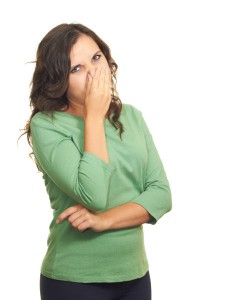Help, My Chimney Stinks!

A stinky chimney is an indicator of an even greater chimney problem that exists or can possibly exist in the future. To get to the bottom of it, let our experts at Chief Chimney help you out.
We all want the same things from our chimney systems. We want a chimney that vents properly and thoroughly. We want a firebox and flue that provides the protection from high heat that they were designed to provide. We want a system that keeps moisture from making its way into the interior of our chimney — and the interior of our home. And we want a chimney that doesn’t stink.
As CSIA-certified chimney professionals, Chief Chimney technicians are focused on helping our clients get all of that from their chimney systems — optimum performance, optimum levels of safety, minimum levels of moisture intrusion, and a pleasant absence of stink. If you’ve been frustrated by a stinky chimney, we can help.
Chimney Odors Are A Warning Sign
The thing about chimney odor that we often don’t think about as we’re turning up our noses: It’s helpful, in a sense. That’s because ultimately, chimney odor is an indication that there’s a bigger problem going on in your chimney or with the use of your heating appliance.
A Musty, Dank Odor
If the smell you’re noticing is dirty, musty and dank, that’s most likely related to moisture, and very possibly is coming from mold growth. If you have mold or moisture, odds are you have a chimney leak.
Chief Chimney technicians can inspect your system thoroughly to figure out what’s allowing moisture to get into your chimney — which can be anything from a cracked chimney crown to damaged flashing, or something as simple as a missing chimney cap. When we find the culprit or culprits, we can make repairs to get rid of your leak — and get rid of that smell!
A Singed, Smoky Odor
Even though you’re routinely lighting a fire in your fireplace or stove, you shouldn’t smell a smoky odor in your home —your chimney is meant to carry away the byproducts that contribute to a smoky odor. So if you smell (or see) a lot of smoke when you’re using your appliance or in between uses, that’s an indication of a problem either with your venting system, or your burning practices.
If there’s a problem with your chimney’s draft — the upward movement of air that carries out combustion byproducts and smoke — you’ll most likely get an indication of that through a smoky stink. If you haven’t had the chimney swept in more than a year, there’s a good chance your problem is excess creosote buildup. But the problem could also have to do with chimney blockages, wind-induced downdrafts or a variety of other issues. We can inspect your chimney system to find your issue and correct it.
Smoky odors can sometimes just be the result of less-than-optimum burning practices, though — even something as simple as neglecting to open your flue completely during your fires.
Burning anything other than seasoned or kiln-dried cordwood — like wood that isn’t properly dried, trash or Christmas trees — can also cause your fire to produce excess smoke and excess creosote. In the case of burning green or moist wood, it can contribute to the development of troubling Glazed Creosote, which is extremely combustible, has a particularly strong odor and is really difficult to remove. If your flue has glazed creosote, we can remove it, and bring your system back to proper (and less stinky) condition.
If you have questions about the best burning practices and chimney odor problems, we’re always happy to help our valued clients. Just give Chief Chimney Services a call!
